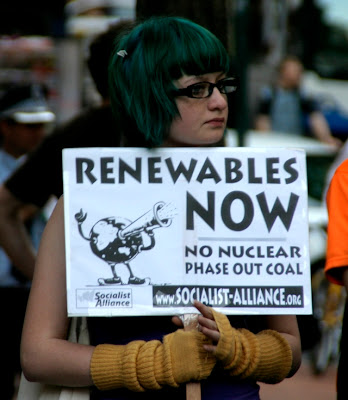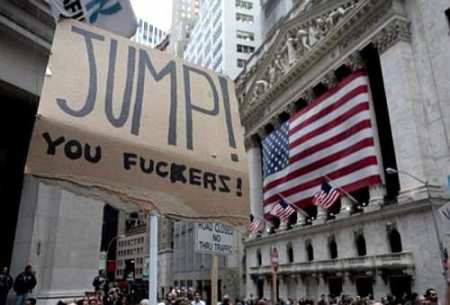capitalism
The global financial crisis: implications for Asia
By Reihana Mohideen
The Wall Street crisis seems light years away from the side streets of Manila’s urban poor slums. For the labouring masses in the Philippines the capitalist system has been in crisis for some time now, unable to deliver life’s basic necessities: jobs and a living wage; affordable quality healthcare and education; and food security.
According to official National Statistics Office data poverty levels have increased between 2003 and 2006, and 2008 is expected to be the worst year since the 1998 Asian economic crisis. Between April 2007 and April 2008 the labour force grew by only 81,000, while the number of unemployed rose by 249,000, i.e. triple the increase in the labour force. In 2008 the number of employed persons fell by 168,000 and there was no employment generation in April of this year. Jobs were being lost at a time when prices and inflation were skyrocketing.
Walden Bello: A primer on the Wall Street meltdown
By Walden Bello, Focus on the Global South
[Read more on the capitalist economic crisis HERE.]
September 25, 2008 -- The Wall Street meltdown is not only due to greed and to the lack of government regulation of a hyperactive sector. It stems from the crisis of overproduction that has plagued global capitalism since the mid-seventies.

Many on Wall Street are still digesting the momentous events of the last ten days:
India: What happens to a dream deferred? Does it explode?
Does it dry up
like a raisin in the sun?
Or fester like a sore--
And then run?
Does it stink like rotten meat?
Or crust and sugar over--
like a syrupy sweet?
Maybe it just sags
like a heavy load.
Or does it explode?
-- Langston Hughes, 1951
By Kavita Krishnan
Climate change -- the case for public ownership

Wall Street crisis: Poor to bail out the rich again

By Peter Boyle
September 26, 2008 -- "Rich people got it good in this country", said African-American comedian Wanda Sykes on the September 24 Tonight Show with Jay Leno. "We refuse to let them not be rich. Think about it. Broke people are about to bailout rich people. This is what is going on."
"And they want no oversight. $700 billion dollars and no oversight! No oversight? Why should we? I want receipts dammit! What do you mean no oversight? Because, oh, you're so good with the other money?"
"This is the biggest piece of garbage ever. You know what? It's welfare for the rich...
The importance of Marx, 150 years after the Grundrisse
A conversation between Eric Hobsbawm and Marcello Musto. Posted at Links International Journal of Socialist Renewal with the permission of Marcello Musto.

Financial crisis: working people will pay
By Dick Nichols
September 20, 2008 -- “Will my superannuation [pension] fund be next?” “Are my savings safe?” As working people in the developed economies watch the assets of one financial institution after another vaporise into nothingness, tens of millions are asking these dreadful questions.

Yesterday’s AAA assets are now junk and yesterday’s “risk-free” investments are losing money. No-one, not even the world’s central bankers, who are spending sleepless nights arranging rescue bailouts and emergency injections of trillions of dollars into a financial system frozen with fear and distrust, can answer them with 100% certainty.
Scenes from Marx in Soho, by Howard Zinn
Scenes from Howard's Zinn's Marx in Soho (Bob Weick of the Iron Age Theatre appears in videos 2 & 5).

By David Travis
September 9, 2008 -- On the fringe of the green movement, one always hears the following phrases coming from the mainstream with great regularity: "green capitalism", "sustainable capitalism", "social entrepreneurs", "green entrepreneurs", etc. None of these terms tend to mean anything specific, and no one who uses them is in a great hurry to spell out, for example, how a green entrepreneur is different in any fundamental way from some other kind of entrepreneur, or how capitalism could be driven toward sustainability rather than profit. So you can imagine my pleasure at meeting the author of a book called Sustainable Capitalism: A Matter of Common Sense.
In defence of Naomi Klein's analysis of South Africa
By Patrick Bond
In response to Beware Electocrats: Naomi Klein on South Africa by Ronald Suresh Roberts in Radical Philosophy commentaries, July-August 2008, http://www.radicalphilosophy.com/default.asp?channel_id=2187&editorial_id=26668
Klein’s chapter on South Africa follows this exchange.

